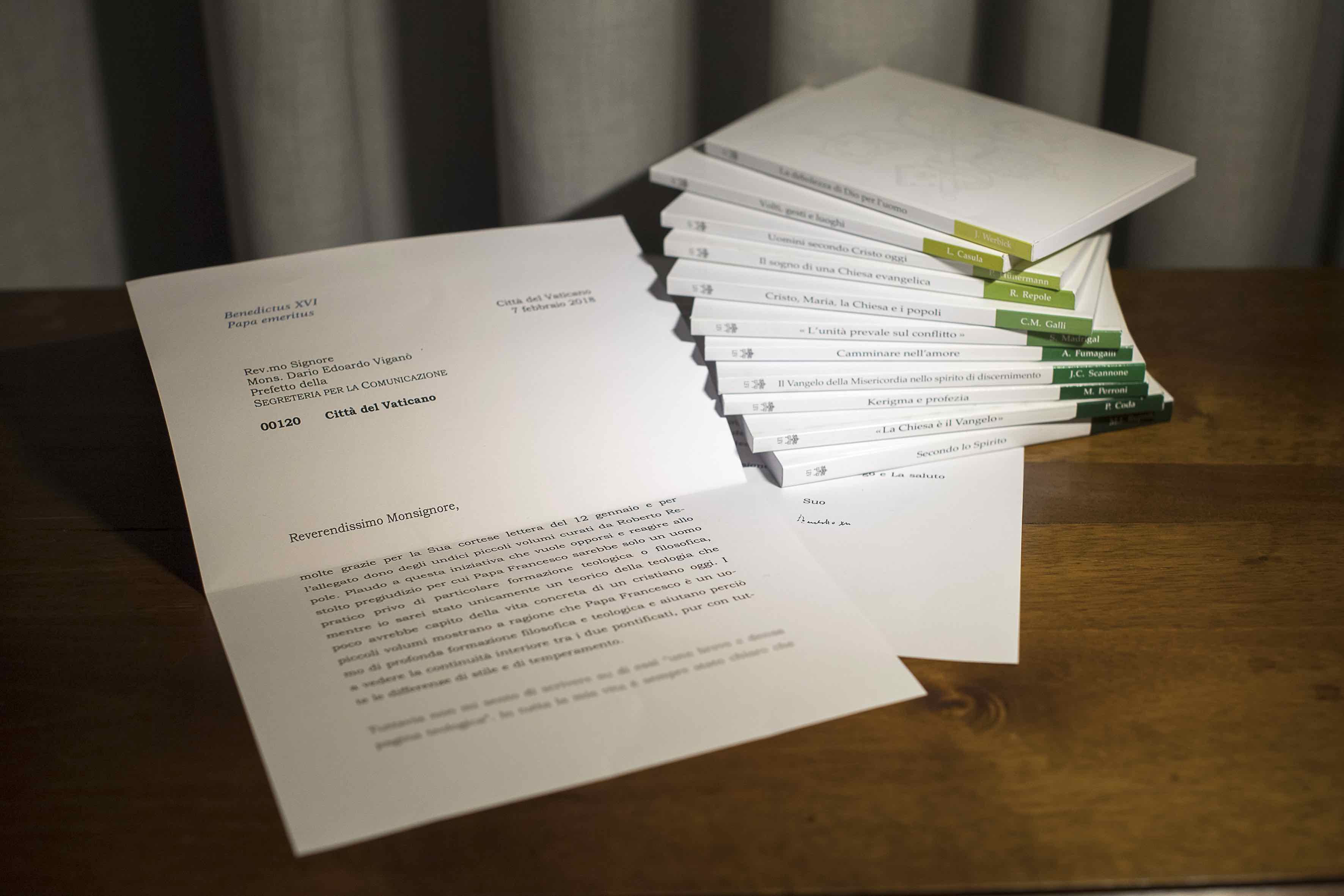Two leading theologians have publicly expressed their “profound dismay and regret” at Pope Emeritus Benedict’s criticism of the German theologian Peter Hünermann.
Benedict’s criticism was made in a letter to the former prefect of the communications secretariat at the Vatican, Mgr Dario Vigano. The letter was written to coincide with the launch of an 11-volume series on the theology of Pope Francis on the fifth anniversary of his papacy. Mgr Vigano made citations from the letter selecting those that reinforced the idea of “continuity” between the papacies of Benedict XVI and Francis. The Vatican was a few days later forced to publish the whole letter, in which Benedict expressed strong reservations about Professor Peter Hünermann, one of the 11 theologians, weakening the overall impression of “continuity”. Mgr Vigano subsequently resigned, writing in a letter to Pope Francis that “recent controversies” were “destabilising" the Pope’s reform work.
Although Mgr Vigano insisted there was “no intent” to censor the letter, he had failed to disclose a part of it where Benedict expressed “surprise” over the inclusion of Hünermann as one of the contributors to the 11 volumes. “Only as an aside, I would like to note my surprise at the fact that among the authors is also Professor Hünermann, who during my pontificate had distinguished himself by leading anti-papal initiatives. He played a major part in the release of the “Kölner Erklärung”, [Cologne Declaration] which, in relation to the encyclical “Veritatis splendor”, virulently attacked the magisterial authority of the Pope, especially on questions of moral theology,” Benedict wrote.
The Pope Emeritus also recalled that the professor had been involved in a European theological initiative that was “organised in opposition to the papal magisterium” but was prevented from developing in this way because other theologians aligned with the thinking of the Church prevented it.
“Additionally, the ‘Europäische Theologengesellschaft [ET]’, which he [Hünermann] founded, was initially conceived by him as an organisation in opposition to the papal magisterium. Later, the ecclesial sense of many theologians blocked this orientation, making that organisation a normal instrument of encounter among theologians,” Benedict wrote in his letter.
The two theologians in their joint public statement delivered on Wednesday 21 March, took deep exception to these comments. Anyone who was acquainted with Hünermann’s extensive theological work “knows that allegations that Hünermann was anti-church and anti-papal do not apply”, the dean of the Catholic Theological faculty in Vienna, Sigrid Müller and moral theologian Martin M. Lintner of Bozen/Bolzano University in Italy declared. Moreover, the “European Society for Catholic Theology (ET)”, of which they are both former presidents, “never at any time opposed the Magisterium”, they insisted. The ET had “from the beginning been a pan-European platform for dialogue between theologians of all theological disciplines, in the context of political events of that time, in particular with theologians from Central and Eastern Europe,” they recalled.
Benedict’s words attested to past tensions between theologians and between theologians and the Magisterium which had left deep wounds at the personal level, Müller and Lintner declared. “We hope that these tensions, which were based on differing lines of theological argumentation, can now give way to reciprocal appreciation”. Aside from a justified plurality of theological approaches, theologians were “always fully aware of their joint commitment to faith, theology and the Church”, the statement said.
Pic: An image showing a letter from retired Pope Benedict XVI to Msgr. Dario Vigano, prefect of the Vatican Secretariat for Communication, is seen in this photo released by the Vatican March 12. On March 14 the Vatican admitted that it blurred the last lines in the image of the letter. (CNS photo/Vatican Media)



 Loading ...
Loading ...